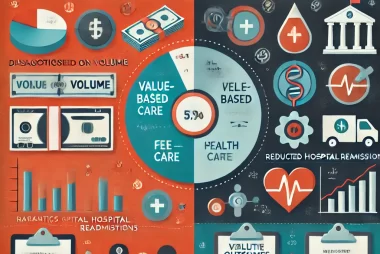Anticipated Growth in Value-Based Care Revenue for 2025 The Strategic Implications for Healthcare Organizations
In recent years, the healthcare industry has undergone a significant transformation, shifting its focus from volume-based, fee-for-service models toward value-based care (VBC) arrangements that reward outcomes over output. This change reflects a growing consensus that sustainable, patient-centered healthcare must align financial incentives with quality outcomes, care coordination, and cost efficiency. Now, new data reveals that…







